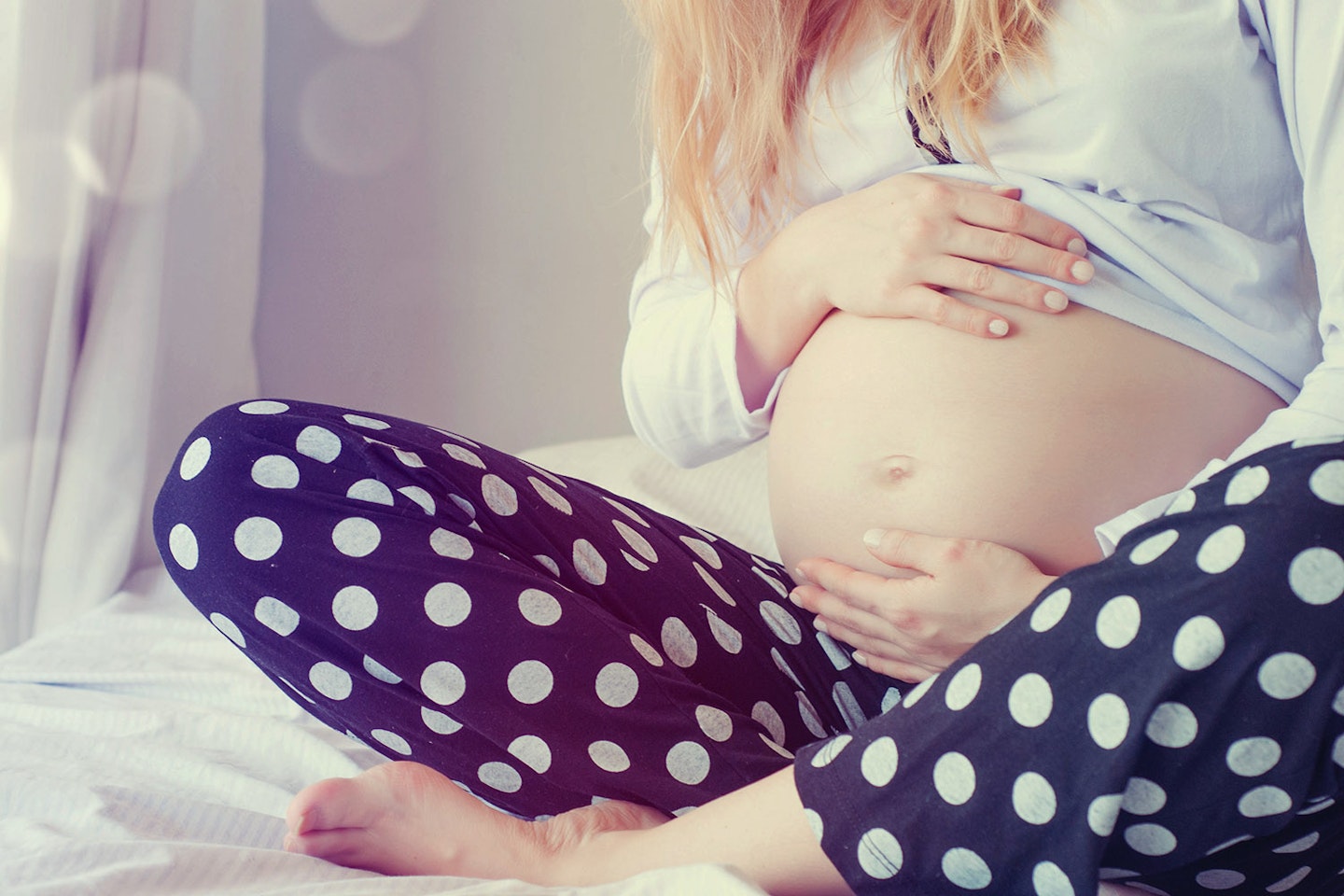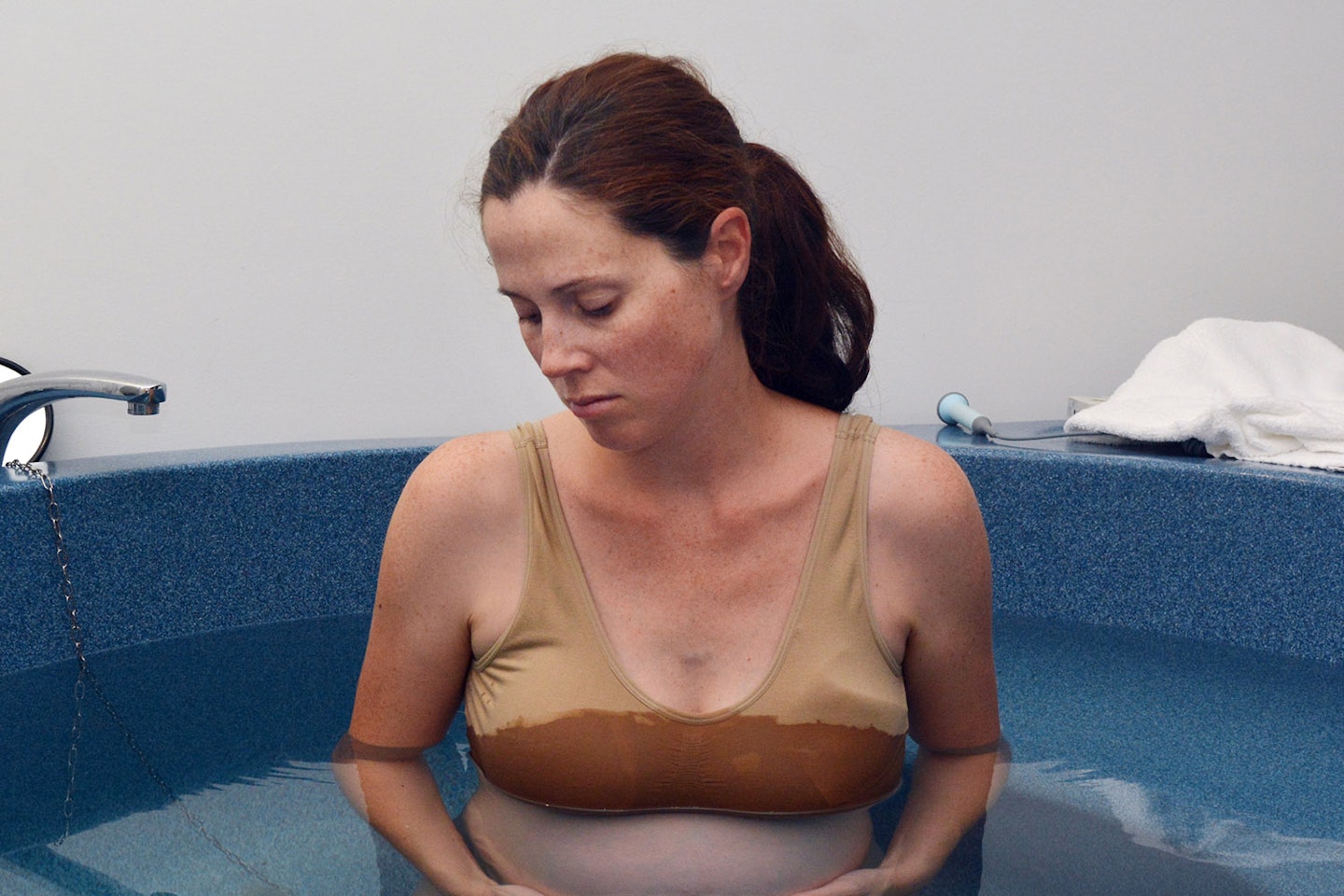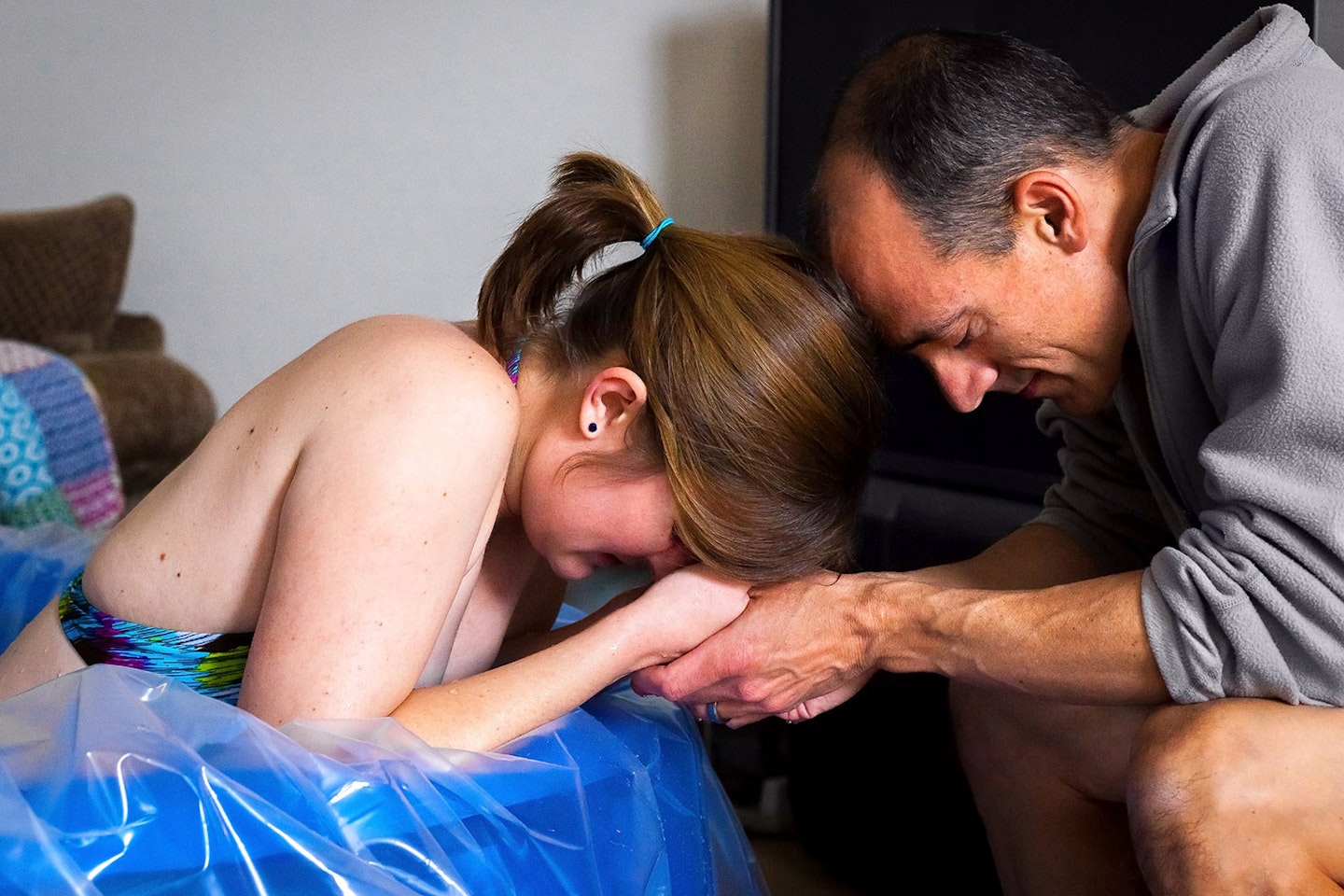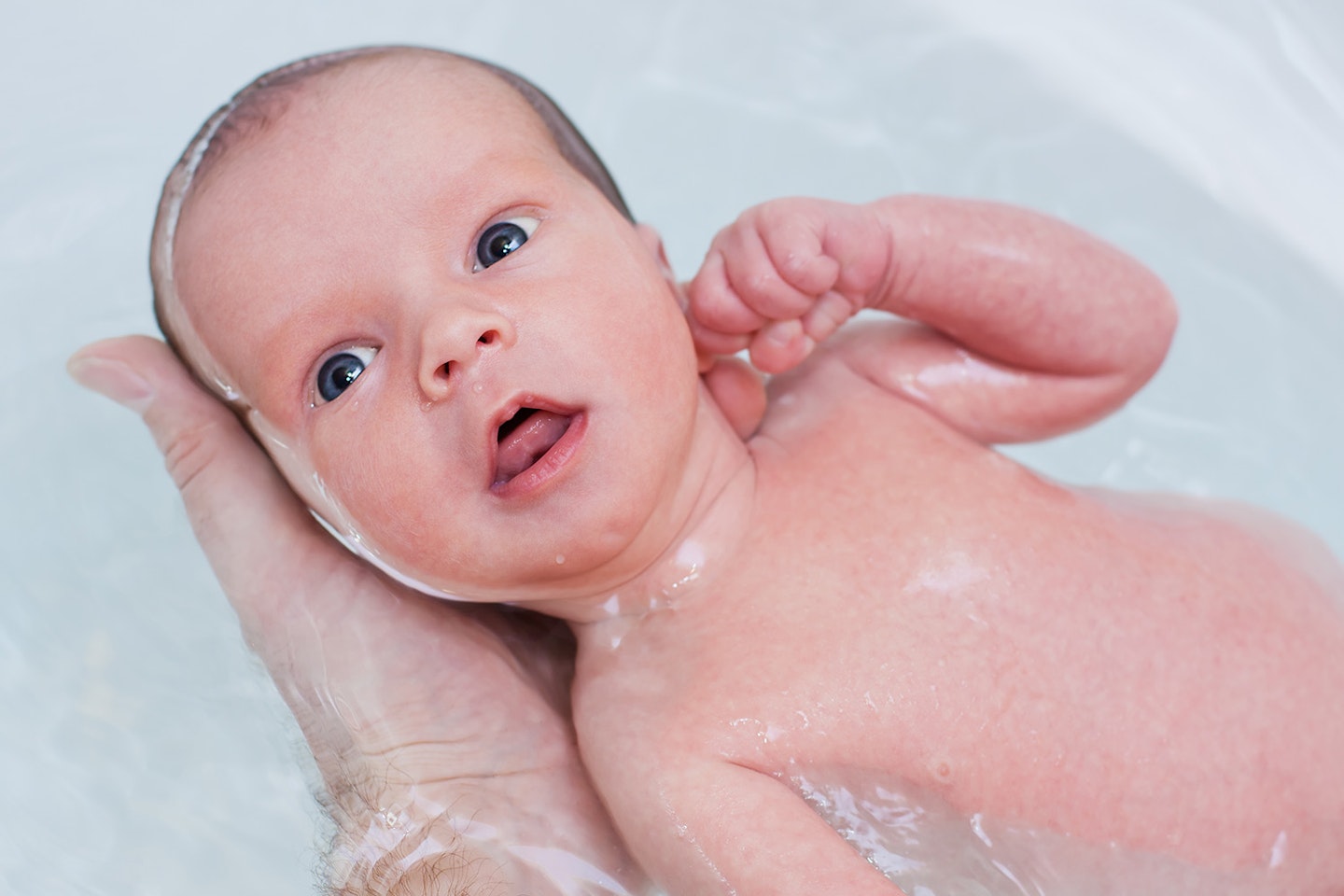What is a home water birth, and should you have one? We spoke to NCT and Private Midwives to answer some FAQs about the increasingly popular birthing trend...
Birthing pools are becoming an increasingly popular method among expectant mums, having become more prevalent in the UK over the last 20 years.
Choosing your birth plan can be daunting, but it's good to know all the options available - and it's now possible to have a home water birth, meaning that you can use a birthing pool to give birth in the comfort of your own home.
We spoke to Val Willcox, NCT Practice Manager and Antenatal Teacher NCT and Liz Halliday, Deputy Head of Midwifery at Private Midwives.
What is a home water birth?
Liz explains: "A home water birth is very simply a birth, at home, which is attended by experienced midwives. In the case of a water birth the baby is born in water (usually in a birth pool), although some women may labour in water and then get out of the pool to birth their baby."
Home water birth STACKED
 1 of 5
1 of 5Why choose a home birth?
Val says: "There are a whole host of reasons why women may plan a home birth. It could be because they have previously had a positive birth experience and now feel confident about having a home birth. "It could also be because they have had a previous negative birth experience in hospital and don't want a repeat of it. They may want to feel more in control of their birth experience or want privacy."
 2 of 5
2 of 5How do home water births work?
Val says: "When a mum plans to have her baby at home in a birthing pool, she will have to organise the hire or purchase of a birthing pool. There are many suppliers of birthing pools which can range from rigid-sided pools to inflatable pools."The expectant parents would need to check that they have space for the pool and consider how to get the water into, and out of the pool and whether their hot water system can cope! The birthing pool suppliers have lots of information on their websites and are usually very helpful answering questions."The mum will have let her midwife know that she's planning a home birth and should have an opportunity to discuss this, and her plans to use a birthing pool."A midwife will normally bring a home birth kit to your home towards the end of your pregnancy. Some midwives suggest preparing a birth box with items such as protective coverings for floors and large towels to keep the baby warm. It's a good idea to pack an emergency bag too in case you have to transfer to hospital with a change of clothes for you and the baby and nappies."You could think about trying different positions before giving birth in water:1) Kneeling, leaning on the side of the pool.2) Squatting, holding the sides of the pool.3) Using floats under your arms for support.4) Floating on your back with your hands holding the sides and your head supported on a waterproof pillow.5) Floating on your tummy with your head turned sideways, resting on a pillow.6) If your birth partner gets in with you, you could try sitting with your back against him or with your arms round your partner's neck."Liz adds: "A family will usually discuss the options of birthing at home with their health care provider, and arrangements are made. If the woman decides that she would like the option of laboring or birthing in water, a birthing pool is delivered to her house about a month before the baby is due. This may be something that she organises herself, or it may be organised through her midwife."Once she goes into labour, the pool is inflated and filled as per previous discussions with her midwife. The family call the midwife to attend and when the woman and midwife feel it is appropriate the woman gets into the pool. The woman often uses the pool in labour for pain relief, and the midwife cares for the her and her unborn baby as normal. When the baby is born under the water the midwife assists the woman to bring the baby safely out of the water and onto the new mother's chest."
 3 of 5
3 of 5Are home water births safe?
Liz says: "Yes. Midwives who attend water births have specialized training in ensuring the safety of both the mother and baby. It is not advisable to plan either a home birth or a water birth without the support of an experienced midwife."Val adds: "We know that many women give birth safely every year in birthing pools whether that is at home or in a hospital. The midwives will be responsible for making sure that the birth is as safe as possible for both mum and the baby and will ask the mum to get out of the pool and possibly transfer to hospital if they have any concerns about her or her baby's wellbeing."Midwives are trained and equipped to deal with most problems during a home birth.
 4 of 5
4 of 5How much do home water births cost?
Val explains: "The cost of having a baby at home would depend on the choices made by the parents. If they decided to hire a birthing pool they might have to pay from £100 to £400 depending on the type of pool and length of the hire period."Pools are hired as 'packages' to suit individual needs. There is a minimum hire period, which differs from company to company, and different prices are charged for different types of pool."A pool with its own heating and filtering system costs more than one without. Extra accessories are usually included as part of the package but the charge for delivery is added on separately. Pools can be delivered and collected by national carriers, so parents do not have to hire from the company nearest to them."Some companies recommend hiring a pool for 2-4 weeks either side of your due date, but you can also hire pools for shorter periods."Liz, whose company Private Midwives is of course a private route, says: "The cost of a home water birth is dependent on the care provider and the package of care booked. At Private Midwives our packages range from £3,370 to £5,575."
 5 of 5
5 of 5Are home water births better?
Liz says: "All births are different and only a woman can decide what the best option is for her and her baby."A home water birth offers some great benefits for women and babies, including:1) The use of water is a wonderful coping strategy for women in labour, and is a great choice for women who do not wish to use pharmacological pain relief.2) The warmth of the water promotes circulation providing better oxygenation to both mother and baby.3) Water provides bouyancy and allows for freedom of movement, promoting active labour which has been shown to result in a shorter labour and birth.4) Warm water relaxes the perineum, resulting in less perineal trauma.5) Babies who are born in water have a gentle entrance into the world."The benefits of home birth have been outlined in the Birthplace Study. In short, the cohort study found that women who birthed at home had less intervention and had a significantly reduced chance of Caesarean Section, instrumental delivery and episiotomy. They were also found to have had an increased chance of having a normal birth."Val adds: "Many women are surprised and delighted at how they are able to relax and get comfortable in a birthing pool, often needing little other pain management to help with their labour and birth. The warm water helps the mum to relax, conserve energy and get into positions which will help the labour. "The use of a birthing pool has been shown to reduce the average length of the labour and increases the likelihood of a straightforward birth."But the decision on where a mum wants to give birth and whether to use a birthing pool are very personal, individual decisions and what is right for one woman may not be right for another. It's important that a mum feels confident and comfortable wherever and however she plans to give birth."
WATCH: The One Born Every Minute Midwives explain birthing pools
**Have you or someone you know ever given birth in a birthing pool? What about having a home water birth? We want to hear from you! Let us know over on **Facebook and Twitter.
READ MORE...
Mother and daughter give birth just HOURS apart in the same hospital
